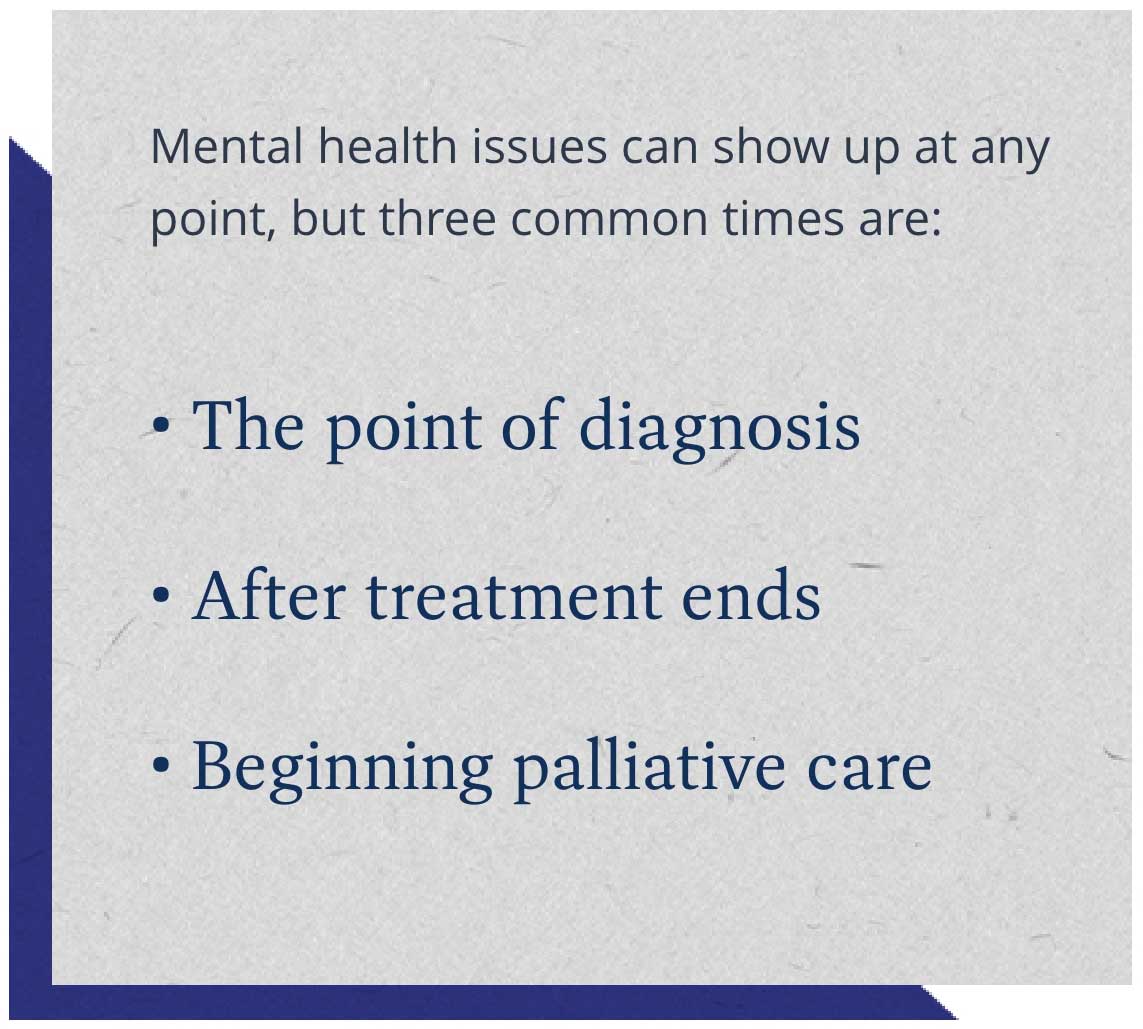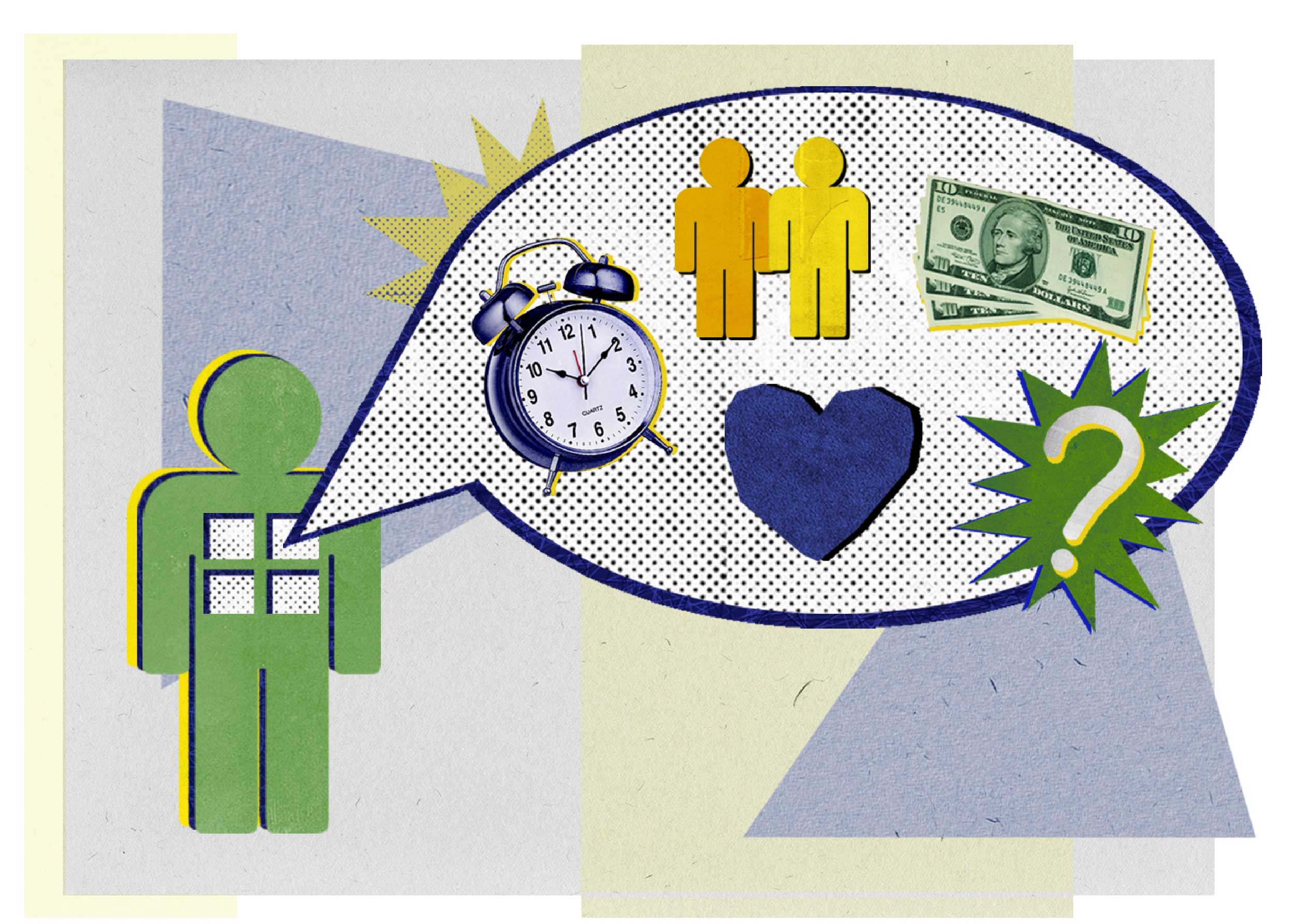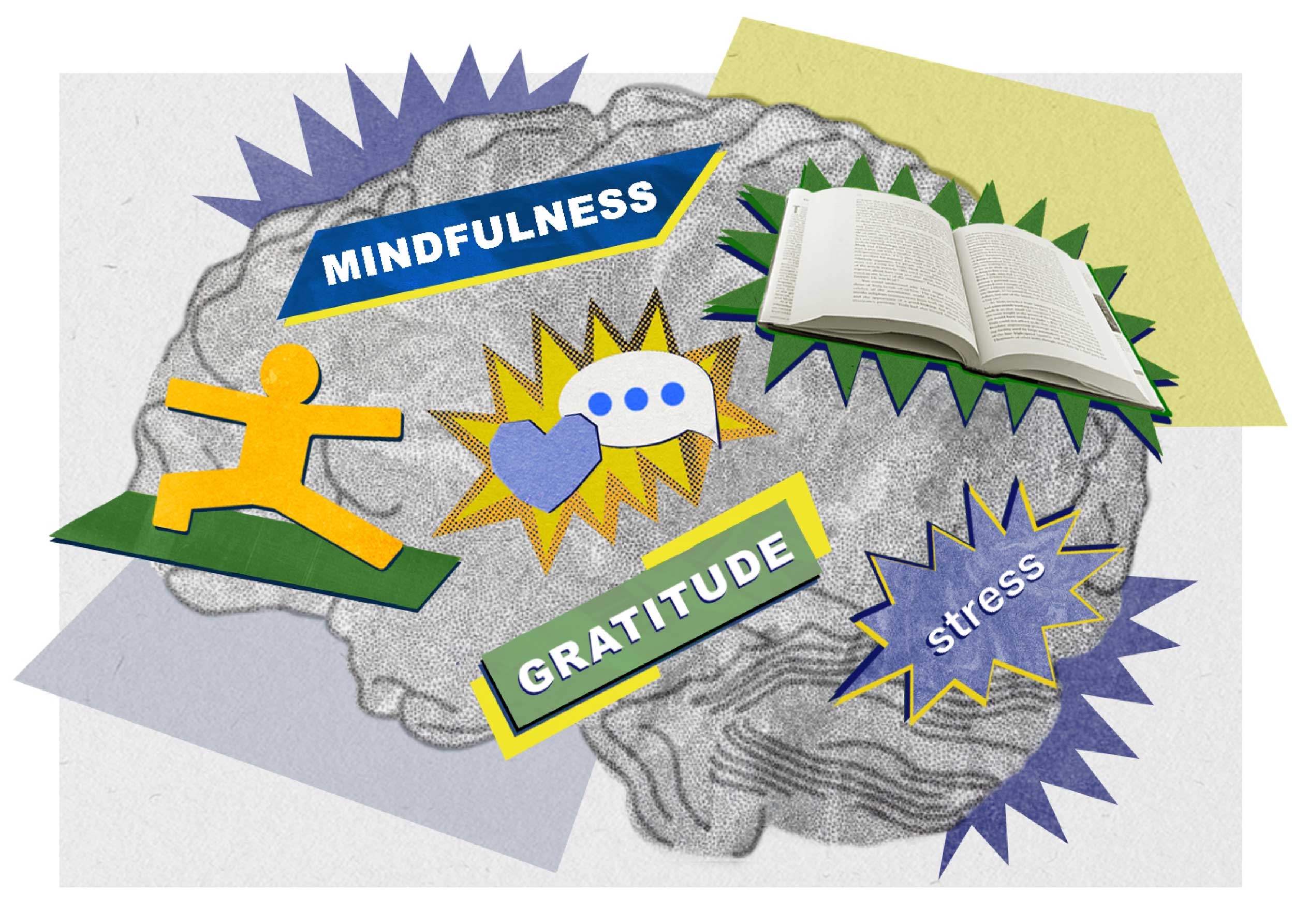Help for the Helpers
Help for the Helpers
5
min read

Your overall health includes more than your MF
Information displayed on this website is upon the condition that the persons receiving the same will make their own determination as to its suitability for their purposes prior to use or in connection with the making of any decision. Neither CTI BioPharma, its affiliates, nor their officers, employees, or agents shall be liable for any loss, damage, or expense arising out of any access to, use of, or reliance upon this website.

While one of the main characteristics of myelofibrosis (MF) is the diversity of its symptoms, what all MF patients have in common is a greater vulnerability to mental health issues.
We spoke to three mental health experts who all agreed that you can make a significant difference in your mental and physical health and overall quality of life. Learn what to watch out for, why, and when to look for it. Then see what help looks like and where to find it.
“While getting a diagnosis can be a relief, the weight of having a rare disease is heavy.”

Even if you’ve never experienced mental health issues, it’s important to keep an eye out for them. A cancer diagnosis itself can be a medical trauma—a powerful shock to your system—as your body becomes a threat, a trigger for uncertainty and fear, explained Dr Michelle Flaum, EdD, LPCC-S, DCMHS, Professor Department of Counseling at Xavier University. Flaum is an LPCC-licensed professional clinical counselor who works with cancer patients directly and supervises masters-level counseling students treating patients who have experienced medical trauma.
“Cancer can be one of the most terrifying diagnoses,” Flaum said. “It becomes an issue of mortality. It triggers quite a bit of fear, understandably. And it can bring up deeper, more existential concerns. It can just open a window into processing your life, trying to make sense of your relationships, and your history, as well as creating anxiety about the future and what that’s going to look like for yourself and your family. This is a very heavy burden for people.”
And while, after months or years of sickness, getting an actual diagnosis can bring some relief, the weight of having a rare disease is heavy. People in your life may not know what MF is. And the literature may be based on individual case studies, rather than many participants.


The type of mental health issue you may experience can vary from depression to anxiety disorders to grief. “I do a lot of grief work with people who are diagnosed with cancer, and not just in terminal situations,” Flaum said. “They are grieving the loss of normalcy, the loss of a sense of self prior to who they were before the cancer diagnosis, the loss of different aspects of their identity, the loss of capabilities, and so much more.”
Licensed Psychologist Dr Teresa Young, who works with patients struggling with chronic illnesses like myelofibrosis, said depression and anxiety are the top of the list in the patients she sees, but notes many secondary diagnoses. “Depression and anxiety coincide with other issues that aren’t psychiatric, like existential dread, or difficulty tolerating the uncertainty, especially with rare cancers,” she said.
“Another concept getting traction in the research is not a psychiatric condition, but demoralization, which is distinguished from depression,” Young explained. “It’s when people can’t cope with the current situation. It’s a component of depression that’s really common with people with cancer.”

While managing your MF is your top priority, don’t overlook your mental health. It’s not one or the other.
“Depression and other mental health concerns can be treated even when [you are] dealing with very poor health,” said psychotherapist Marjorie Grafton, LISW-S. “In this case it is important to keep your expectations realistic. There is no therapy that can convince you that you don’t have cancer or that cancer is a breeze—these things are simply not true. But therapy can improve the way that you are coping with the changes in your life due to cancer, improve the quality of your time left, and help you prepare for end of life. It can be easy to focus purely on survival, but the quality of your days matters just as much as the quantity.”
Left untreated, mental health issues may compound the challenges of living with MF. “We know the detrimental effects of stress on the body. Especially chronic stress. It can get to the point of affecting our immune system, and every system in our bodies. It’s important to learn how to better manage stress,” Flaum said.
“It can be easy to focus purely on survival, but the quality of your days matters just as much as the quantity.”

Mental health issues can also impact your ability to follow through on your cancer treatment. “I do know that the adjunct of psychological treatment does help with enhanced quality of life,” Young said. “Maybe increasing survival rates as well—following medication regimen, making appointments, and getting support from family.”
Grafton added, “We know that when people living with cancer feel supported, they are likely to do better physically. Cancer patients receiving mental health care are more likely to follow through with medical care and even show improved survival rates. Overall, mental health care can lead to better quality of life, no matter the amount of time we have left.”
“Cancer patients receiving mental health care are more likely to follow through with medical care and even show improved survival rates.”

The good news about seeking mental health support is that it’s a lot easier than it used to be, especially for cancer patients.
“In the last few decades, there’s been an increase in awareness for the levels of support cancer patients need,” said Young, pointing to the fact that today there is a subspecialty of psychiatric oncology, and that many oncology practices have mental health professionals on their teams.
The pandemic played a significant role in how we talk about and treat mental health issues. “The number of resources, research studies, and people talking about medical trauma has grown exponentially,” Flaum said. “Then COVID really brought the connection between physical illness and mental health to the forefront in a huge way.”
The pandemic also generated a massive increase in the use of telehealth, which hasn’t waned, especially for people with medical issues that make travel—or even getting out of bed—difficult.
“In the last few decades, there’s been an increase in awareness for the levels of support cancer patients need,”

Paying attention to your mental health and treating it when necessary is an important part of living with MF. “You’re trying to hold everything together, hold your life together, work, take care of your family, and, on top of that, you’re trying to treat your cancer. So check in with yourself,” said Flaum, “Make sure you are communicating with loved ones, make sure you have a strong support system, and for those who don’t have one, early on look for a mental health professional.”
“You need someone you can share with, without censoring yourself. That becomes a very important part of the treatment process. It doesn’t do any good to hold in those feelings. That could just go on to creating more mental health issues and physical problems,” Flaum continued.
Flaum added, “This is one of the most challenging and traumatic things we can experience in life. Give yourself some compassion and grace, and recognize that you’re not alone.”
“You need someone you can share with, without censoring yourself. That becomes a very important part of the treatment process.”
